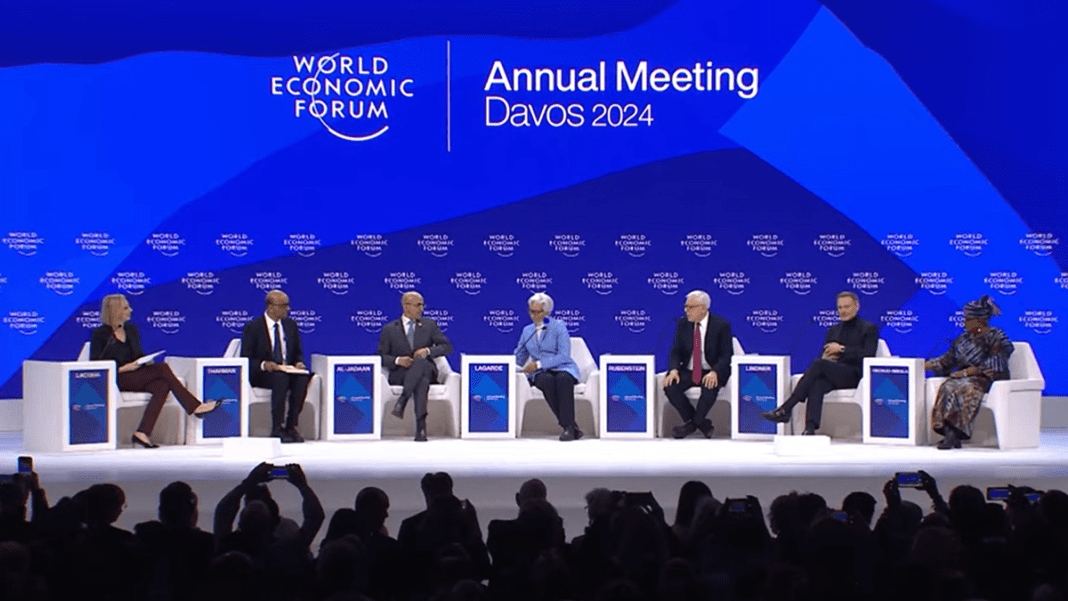SWITZERLAND: In the backdrop of escalating geopolitical tensions, the 54th Annual Meeting of the World Economic Forum (WEF) brought together nearly 3,000 influential figures including policymakers, business leaders, academics, and innovators from around the globe. The week-long event, held in Davos, Switzerland, served as a crucial platform for fostering trust, generating innovative ideas, and building partnerships to address pressing issues affecting people, economies, and the planet.
During the Annual Meeting, over 450 sessions and workshops facilitated open dialogue, sparking debates and aligning diverse perspectives. The Forum and its partners seized the opportunity to launch or advance more than 50 high-impact initiatives, fostering ongoing collaboration across geographical and industrial boundaries.
Klaus Schwab, Founder and Executive Chairman of the WEF, emphasized the need to rebuild trust not just as a sentiment but as a commitment to action, belief, and hope. Leaders from various nations echoed this sentiment, calling for renewed cooperation and security in a world marred by fragmentation.
United Nations Secretary-General António Guterres expressed concerns about geopolitical divides hindering global collaboration, emphasizing the urgency of overcoming trust deficits. Premier Li Qiang of China urged the world to discard prejudice and work collectively to tackle the challenges ahead. European Commission President Ursula von der Leyen emphasized the multi-inflection points the world is facing, urging nations to deepen global collaboration.
Ajay S. Banga, President of the World Bank Group, highlighted the interconnectedness of crises, emphasizing that addressing poverty requires consideration of climate, healthcare, and food insecurity. Kristalina Georgieva, Managing Director of the International Monetary Fund, called upon leaders to embrace the responsibility to act, even if it’s not popular.
Also Read: Benjamin Talin: Navigating Uncharted Paths to Inspire Change
French President Emmanuel Macron encouraged world leaders to be realistic yet optimistic in addressing challenges related to peace, security, jobs, and decarbonization. Ukrainian President Volodymyr Zelenskyy announced plans for a potential global summit to push for peace and called for renewed investment in Ukraine. Sessions on the Middle East conflict underscored the urgency of international action to prevent a stalemate and possible escalation of hostilities.
The Annual Meeting also served as a catalyst for several initiatives. The Global Cooperation Barometer revealed a resilient decade of global cooperation in trade, capital, innovation, and technology, but also highlighted a decline in cooperation on peace and security. The Western Balkans Diplomacy Dialogue reaffirmed commitment to a common European future, while the Humanitarian and Resilience Investing initiative announced over 50 commitments to boost impact investment.
The World Economic Forum, along with Swiss partners, launched the Global Foresight Network to incubate future preparedness, and the Faith in Action report showcased collaborations between businesses and faith-based groups addressing interconnected global crises.
Looking ahead, a special meeting, hosted by Saudi Arabia, is scheduled for April 28-29, 2024, focusing on “Global Cooperation, Growth, and Energy for Development.”
In the realm of economic growth and trade, participants argued for a new growth model that balances growth and productivity with innovation, inclusion, sustainability, and resilience. Leaders emphasized the need to redefine prosperity, address climate transition, tackle social security challenges, and navigate the complexities of the AI era.
The 54th Annual Meeting of the World Economic Forum not only served as a critical platform for diplomatic dialogue but also catalyzed initiatives aimed at shaping a more collaborative, sustainable, and secure global future.
Also Read: Nesime Dogan Gunter: A Visionary Entrepreneur on a Mission for Ecology and Technology



